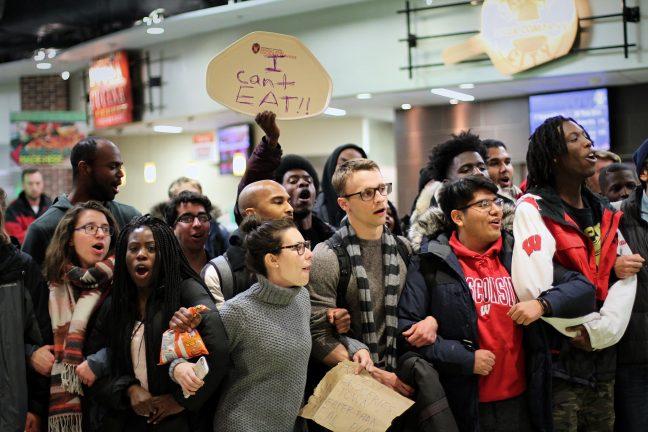In November 2017, the news broke all new first-year students living in dorms would be forced to pay $1,400 in the university dining halls. The plan, led by Dining & Housing Director Jeff Novak, was intended to increase “transparency for families” and financially stabilize university dining. While the news leaked sooner than Novak anticipated, he was confident this plan was the best idea for new University of Wisconsin students and families.
Immediately, campus leaders and activists rebuked and criticized the proposed meal plan. Op-ed after op-ed criticized the plan as disregarding students of faith, low-income students, students with dietary restrictions and shared governance. Meetings with Novak and university administration often led to more questions than answers, and it became obvious as all students felt confused and left out, most of the administration felt the same.
University segregated fees do not discriminate based on political affiliation
Students wondered if anything could actually be done to fight this policy. We are quick to criticize campus issues, but rarely do things ever seem to change.
But something about the meal plan opposition was different.
For once, students were demonstrating genuine unity around a single issue. While many campus protests are decentralized and personally motivated, the effort against the meal plan was one of solidarity.
Both College Republicans and College Democrats released statements against the plan. The Center for Religion and Global Citizenry, the interfaith group on campus connecting religions across Madison, spoke out about the plan. Student Labor Action Coalition, Workers Class Student Union, the International Socialist Organization and other student organizations all joined together to strategize the most effective protest methods.
And for once, the administration listened. Within months, Jeff Novak changed the plan to allow students to roll over money the year after, to pay the $1,400 in quarterly installments and to allow some students to opt-out under special circumstances.
In addition, he agreed to create the first ever shared governance committee for Housing and Dining, which will make sure every decision the administration wants to do will have student input in every step of the way. While the meal plan has not yet been eliminated, it’s a strong start that shows change is possible.
At UW, the solution to many of our issues is very much the same. Whether it’s funding for our school, eliminating the meal plan, providing medical amnesty, creating gender inclusive restrooms, including more student input or offering better treatment and awareness for victims of sexual assault, anything students are fighting for gains momentum when we are united.
College students must forge personal political ideals, rather than perpetuating parents’ beliefs
Change did not take place due to the kindness of administration or strategic relationships built with people in charge. Change took place because an administrator’s worst fear came true: The entire campus, from all different opinions and beliefs, came together against their plan.
The same could be said for last year’s “Save Our Orgs” campaign that advocated against the segregated fee opt out. Our relationships with politicians only went so far. Our plea to their emotions only went so far.
But when 30 different student organizations — who realized the importance of segregated fees for our campus community — came together to work on lobbying workshops, petitions, statements and everything else that was done during the year, politicians eventually agreed to cancel the opt-out idea.
Student groups unite in effort to oppose contentious budget proposal
Over the course of the next year, a lot of campus issues need to be worked on. The meal plan still considerably discriminates against low-income students. Politicians are drafting up a budget again and could possibly defund UW or take out or segregated fees. Textbook costs are still rising. Our school faces drastic issues of inclusivity and sexual assault. The list of issues students face every day seems endless and impossible to tackle.
A personal impact from an issue is not the only reason to support certain causes on campus. Spot the campaigns and issues being worked on and show support. It’s clear true change takes place when communities are united.
So, come to events, write opinion pieces, encourage your student organization to take a stance on the issues. As history has taught us, true change comes when communities are united. It must be the entire student body’s goal to remain united against injustices in our campus community.
Yogev Ben-Yitschak ([email protected]) is a sophomore studying marketing














